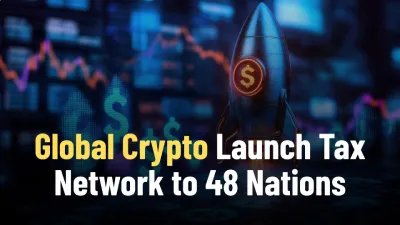Smart People, Costly Scams: Education Isn’t Enough
Sundramoorthy said investment scams continued to ensnare victims from all walks of life, including highly educated professionals accustomed to analytical and evidence-based thinking
简体中文
繁體中文
English
Pусский
日本語
ภาษาไทย
Tiếng Việt
Bahasa Indonesia
Español
हिन्दी
Filippiiniläinen
Français
Deutsch
Português
Türkçe
한국어
العربية
Abstract:Amidst rising regulatory scrutiny, Binance's recent withdrawal of a financial license application in Abu Dhabi signals a strategic shift, impacting its global operations and regulatory engagements.

Binance, amidst heightened regulatory attention, has withdrawn its application for a pivotal financial license in Abu Dhabi, indicating a reconsideration of its strategy.
Initially submitted a year ago and retracted on November 7, the application aimed for permission to oversee a collective investment fund, according to Abu Dhabi‘s financial regulator’s website. Despite speculations, a Binance spokesperson clarified that this move was not linked to the recent U.S. settlement.
The company, holding regulatory clearances in Dubai and Abu Dhabi, has actively engaged in shaping cryptocurrency regulations in the region. Notably, Binance had announced plans to fill over 100 positions in Dubai last year.

A Binance spokesperson stated that the company assessed its global licensing requirements and determined that the specific license, managed by BV Investment Management Limited for overseeing a collective investment fund, was deemed unnecessary. As a result, the company voluntarily pursued the cancellation of this license.
Changpeng Zhao, the former CEO with Canadian citizenship and Chinese heritage, received UAE citizenship and reportedly owns property in Dubai. The newly appointed CEO, Richard Teng, disclosed during a Financial Times conference that the companys headquarters for the Middle East and North Africa reside in Dubai, hinting at an upcoming announcement regarding its global headquarters' location.
Throughout this year, Binance has withdrawn from various markets such as Germany, Cyprus, and the Netherlands, encountering operational limitations in Belgium. However, it established a Polish entity to cater to Belgian clients and emphasized its focus on pivotal EU markets like France, Italy, and Spain, anticipating forthcoming crypto asset regulations in the EU.
Abu Dhabi boasts one of the most sophisticated regulatory frameworks for digital assets, providing clarity for entrepreneurs and clients. The UAE, particularly, exhibits strong support for fintech, showcasing initial success stories in the Middle East's fintech landscape.
While persisting in regional expansion, Binance had sought an IPA in Abu Dhabi (eventually intending for an FSP), marking its third approval in the Middle East, following Bahrain and Dubai, the second-largest city in the UAE after Abu Dhabi.

Disclaimer:
The views in this article only represent the author's personal views, and do not constitute investment advice on this platform. This platform does not guarantee the accuracy, completeness and timeliness of the information in the article, and will not be liable for any loss caused by the use of or reliance on the information in the article.

Sundramoorthy said investment scams continued to ensnare victims from all walks of life, including highly educated professionals accustomed to analytical and evidence-based thinking

Police busted 97 online scam cases and seized more than RM5 million, in a series of integrated operations conducted in the capital throughout last year.

When traders ask, "Is OneRoyal legit or a scam?" The answer isn't simply yes or no. OneRoyal is a trading company that has been running for almost twenty years and has important licenses from top financial authorities. This background puts it far away from typical quick scam operations. However, questions about whether it's trustworthy are reasonable and often come from its complicated business structure, the use of overseas companies, and a pattern of specific, serious complaints from users. This article aims to go beyond marketing claims and provide a fact-based analysis of OneRoyal's trustworthiness.

A global crypto transparency era begins as 48 countries enforce CARF rules; data-sharing to combat tax evasion expands worldwide by 2029.
